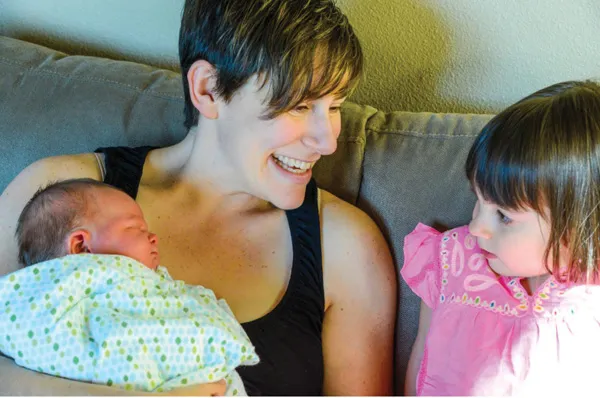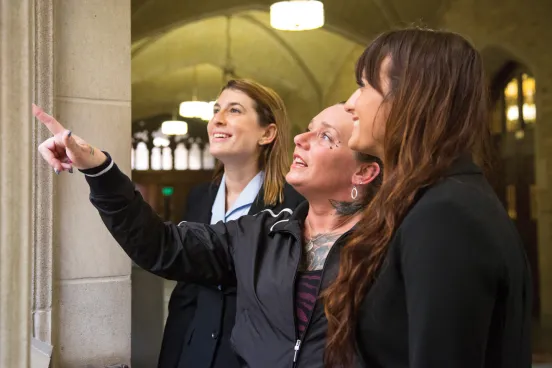
Nadine Gartner, ’06, knew as early as middle school that she wanted to do something to make her community better. But it wasn’t until the birth of her first child in 2013 that Gartner’s true passion came into focus.
While she was pregnant, several friends asked about her vaccination plan for the baby. When she learned that parents in her community had chosen not to vaccinate or to delay their children’s vaccines, she went online to learn why.
“I was shocked at the prolific and vehement anti-vaccination misinformation that surfaced,” Gartner says. “The only pro-vaccine messaging came from federal and state governments, which many parents distrust.”
Among the reasons many parents choose not to vaccinate their children, Gartner discovered, is a now-debunked study from 1998 suggesting childhood vaccines (in particular the vaccine for measles, mumps, and rubella) were linked to autism. A growing body of research since then—including a study published last March in the journal Annals of Internal Medicine from the American College of Physicians—has found no evidence of such a link. But some parents still have concerns, and Gartner realized that she needed to create a source of reliable information that they could trust.
The result: Boost Oregon, a nonprofit organization founded by Gartner to provide direct education to parents who are unsure about vaccines and peer-to-peer education in which parents who are in favor of vaccines can be advocates within their own communities.
“Although the majority of parents in Oregon vaccinate their children,” she says, “their voices have not been heard in the ‘vaccine debates’ presented in traditional and social media.”
Boost Oregon, which does not accept donations from pharmaceutical companies, provides a forum for parents to share their stories so they can learn about the role vaccines play in keeping their children and community healthy. In addition, Boost Oregon trains physicians on effectively communicating with parents who are hesitant to vaccinate their children. Gartner noted that physicians don’t typically learn how to address the issue as part of their medical training.
Gartner, who previously practiced civil litigation at Stoll Berne, says her experience with legal research and writing is now bolstering her grant writing to generate funding for Boost Oregon. Her skill in reviewing contracts and other documents allows her to feel confident in her ability to make decisions about the partnerships she is forging to build support for the nonprofit.
Grant funding has allowed Boost Oregon to host community workshops in Portland. Led by pediatricians, the workshops provide a safe space for parents to bring their concerns and questions about vaccines and to get evidence-based answers.
“To date, our workshops have been extremely successful,” Gartner says. “The parents who attend either (previously) have not vaccinated at all or have done so on a selective or delayed basis, and 99 percent of attendees report after the workshop that they intend to vaccinate their children fully.”
In addition, Boost Oregon distributes a Parents’ Guide to Children’s Vaccines and provides tools such as a vaccine schedule and blog for parents, as well as a list of outside resources. Its annual Boostapalooza is a family-friendly event featuring entertainment, food, drinks, prizes, games, and a silent auction.
Gartner says the need for reliable information during the recent measles outbreak in the Portland area reaffirms her decision to establish Boost Oregon. “Looking back on it, it was the right decision. I’m really proud of what Boost has become, and there is still a lot of work to do, but I’m happy with the direction we’re headed.”
A version of this story originally appeared in the April 2019 issue of the Oregon State Bar Bulletin. It is reprinted with permission.






